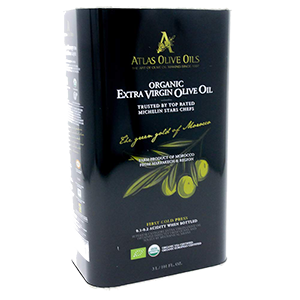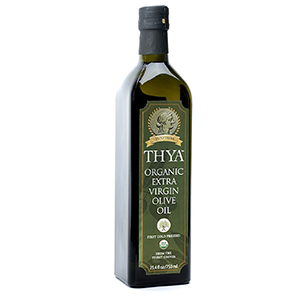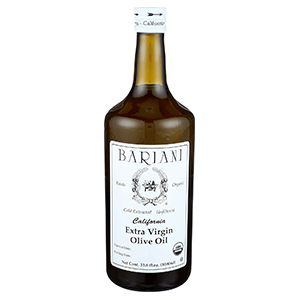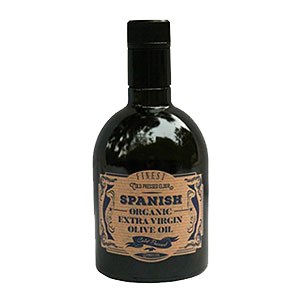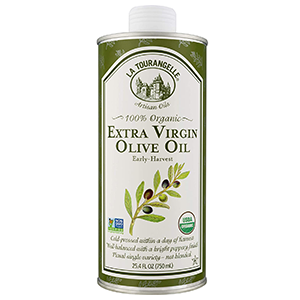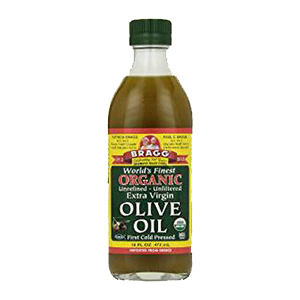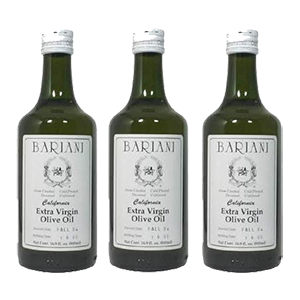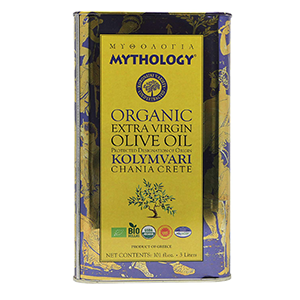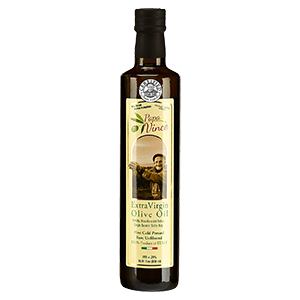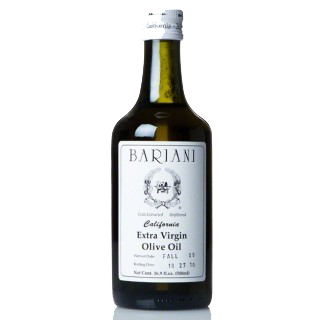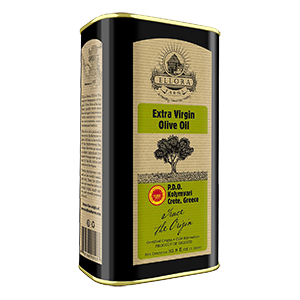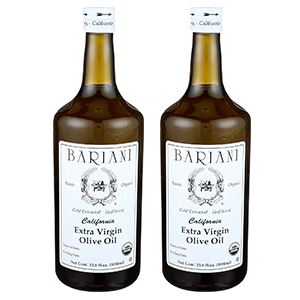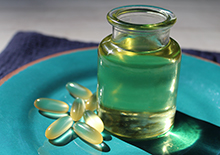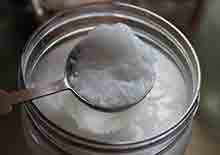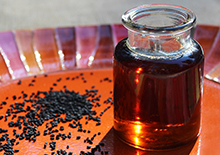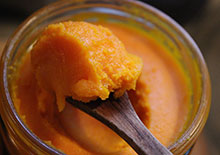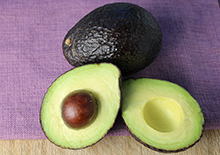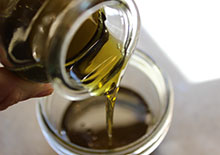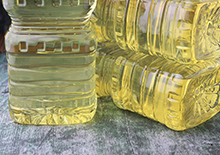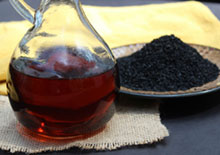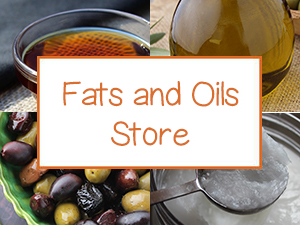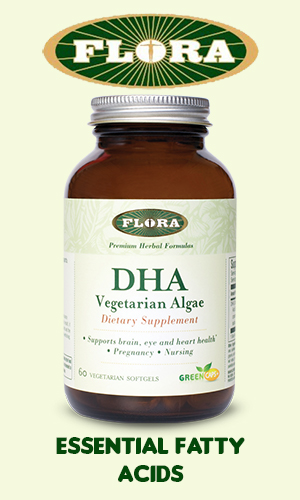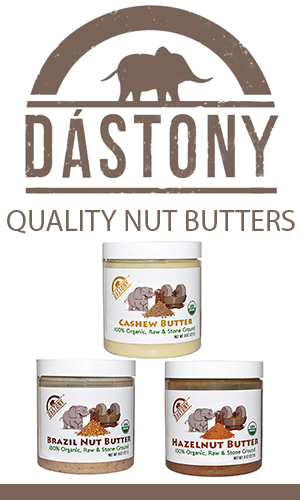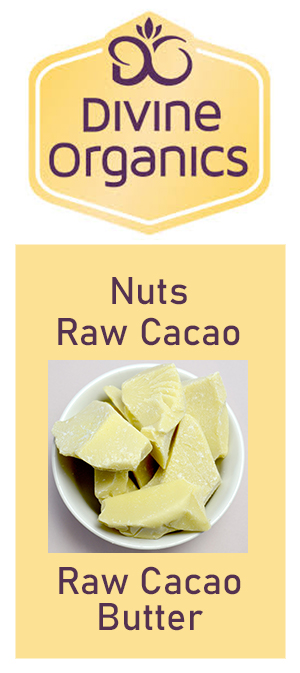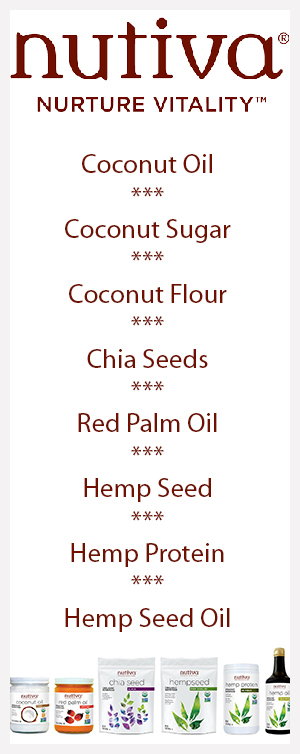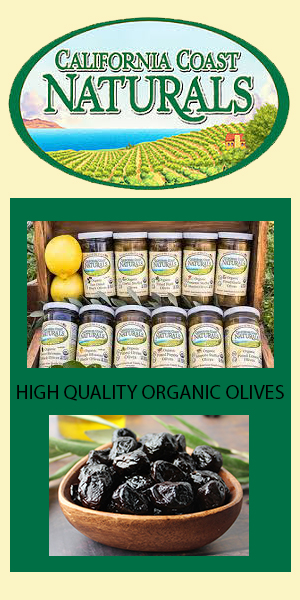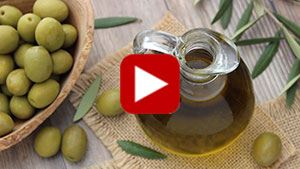What is Extra Virgin Olive Oil? Why It's Better
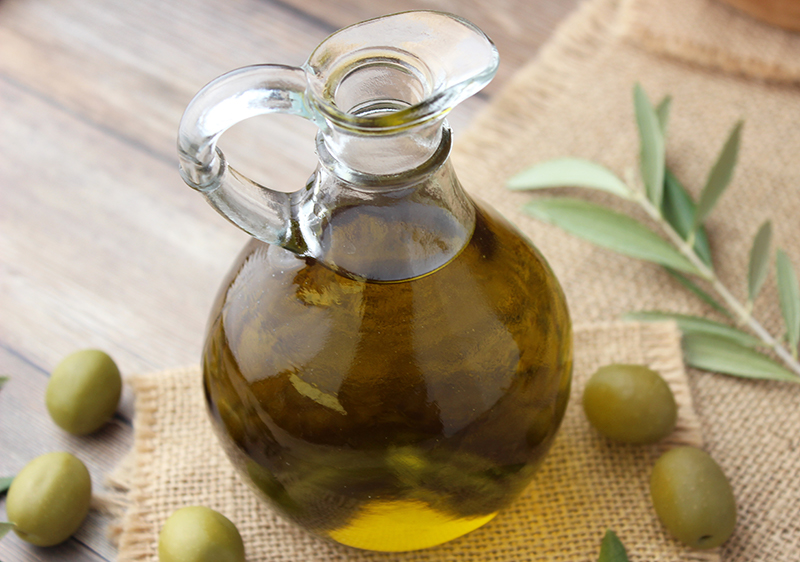
Extra virgin olive oil is like other types of olive oil initially made by pressing raw whole olives. It is usually created from a combination of green and darkening olives in varying stages of ripeness which impart different taste qualities.
Typically, the olives utilized are specific species known for their particular oil content. Because olive varieties and ratios of ripeness incorporated are unique to each producer, brands can differ greatly in flavor and overall nutritional quality.
What do all extra virgin olive oils have in common? Although there is a large degree of variation among suppliers, essentially the term "Extra Virgin" is the highest grade an olive oil may obtain.
Sometimes referred to using the acronym EVOO, this is oil that is
cold pressed from the olive fruit by slowly grinding it into a paste using
traditional mill stones or modern steel mills. The water and oil
components in the extracted liquid juice that results are separated and
usually filtered (but not always) to increase oil stability and improve appearance.
Three Types of Olive Oil
There are generally three types of olive oil made after this process.
1) Extra Virgin Olive Oil - This is the highest grade and is the
"extra virgin" oil produced from the first cold pressing or extraction that
doesn't involve the use of further refining
techniques. By quality standards it has a superior fruity flavor and
contains no more than 0.8% free acidity. Genuine extra virgin oils don't have any flaws like odors or off-flavors.
2) Virgin Olive Oil - This type is not created from a second pressing, as often claimed, but is simply a lower grade of the extra virgin oil that has an increased
free acidity of closer to 2.0%. Although it still comes from the first pressing, it might be different than an extra virgin variety because of factors like olive grade and ripeness. It may have a relatively decent
taste but is considered to have some sensory defective features.
3)
Refined Olive Oil - Refined olive oil is a type "refined" from the first oil pressing using high temperatures and a chemical filtering process which renders an odorless, colorless and tasteless oil. It basically removes higher free acidity to about 0.3% but also flavor profiles. These refined oils typically have a small amount of quality virgin oil added to increase flavor.
About Adulterated and Lower Grade EVOO
Unfortunately, there are many adulterated extra virgin olive oils on the market that are blends using proportions of refined oils like canola oil and soybean oil. Likewise, there can also be lower grade olive oils that are simply labeled "extra virgin."
Indicators of a Truly Genuine EVOO:
- The olive oil should have a rich full-bodied flavor and is usually a golden olive-green color.
- It comes in a dark glass bottle or tin to prevent light oxidation and rancidity.
- Most will have an official extra virgin "seal of certification" by governing agencies.
- Labels will list EVOO as the main ingredient.
- It is generally a bit more expensive than other oils.
- The words "cold-pressed" or "cold-processed" or "cold-extracted" will be on product labels.
- Sometimes an EVOO will get cloudy and solidify when refrigerated. However, some research has identified this test is not always reliable.
If a product labeled "extra virgin olive oil" doesn't have a "seal of certification" but passes the above indicators, it is most likely extra virgin in quality. Some brands or smaller artisan olive oil producers may not take the time to invest in a certification process (detailed below) as there is a fee for this service.
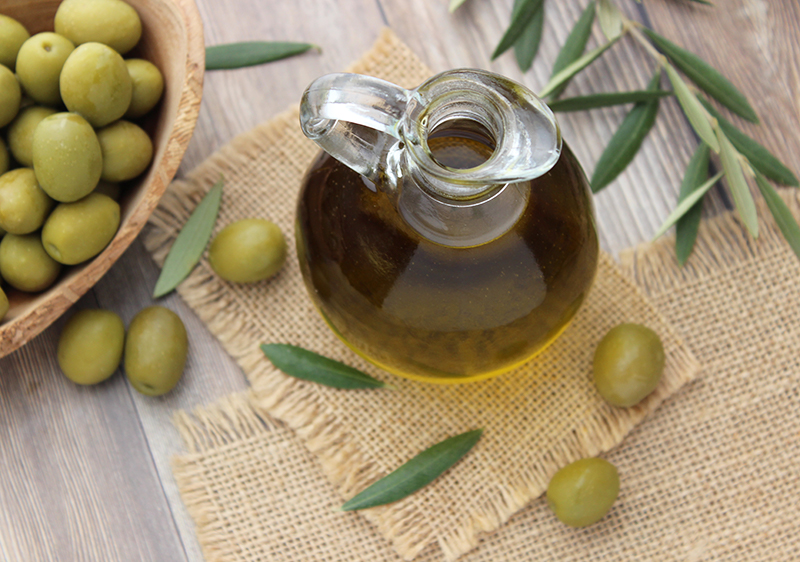
Extra Virgin Olive Oil Certification Standards
Officially speaking, and extra virgin olive oil must undergo specific testing either as dictated by international standards or other governing agency.
This is to ensure the chemistry of the oil meets certain criteria and has not been exposed to olive degradation, chemical processing or extreme heat of any kind during oil extraction. Percentage of free acidity, expressed as oleic acid, is also precisely monitored. The olive oil must likewise go through sensory analysis which is required for complete assessment.
Manufacturers must provide a type of "EXTRA VIRGIN CERTIFICATION" with a seal on product labeling to guarantee extra virgin purity.
The International Olive Council (IOC) officially governs about 95% of the international production of olive oil. Currently, as of 2020, the U.S. is not a member of the IOC but ensures compliance with their set standards through organizations like the North American Olive Oil Association.
Grade certifications are voluntarily obtained from the IOC, USDA or olive producer associations, they are not required to label a product "extra virgin."
Is All Labeled Extra Virgin Olive Oil Guaranteed Genuine?
Does that mean that all oils called "Extra Virgin Olive Oil" without a
seal are not extra virgin in quality? Again, you
don't need official seals to call an olive oil product "Extra Virgin."
Since
EVOO is on the list of one of the most adulterated food products, it is definitely best to guarantee "genuine" extra virgin standards by
looking for a certified seal on bottle labels.
In California, a major olive growing state, the Olive Oil Commission of California, Extra Virgin Alliance and the California Olive Oil Council have long been established to verify extra virgin quality that is OOCC/CDFA, EVA or COOC-Certified.
On a commercial scale, olive oils are frequently a mixture of oils from different suppliers usually from more than one country. Back of bottle labels are required to indicate country or countries of origin.
Why is EVOO Better?
While virgin olive oils are still healthy oils to consume, EVOO by comparison is often believed to be far superior in taste and nutritional properties. It is especially known to contain the highest levels of polyphenols than other types. (Source)
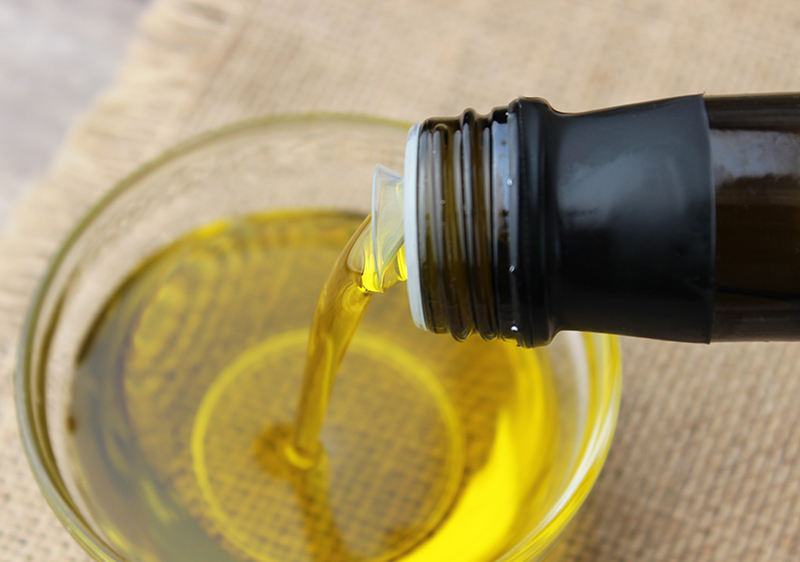
Health Benefits of Extra Virgin Olive Oil
Extra Virgin Olive Oil is High in Oleuropein and Its Derivatives
From a nutritional standpoint, extra virgin olive oil is known to contain the highest amount of health-enhancing nutrients, including polyphenols like oleuropein and its closely related compounds like tyrosol, hydroxytyrosol, oleocanthal, as well as the lignan pinoresinol.
OLEUROPEIN is one of the major phenolic components in raw olives and olive leaf which give the oil its bitter and pungent taste. Oleuropein is particularly found in the skin and flesh of green olives and upon their oil pressing produces other polyphenol derivatives.
The oleuropein derived polyphenols in EVOO have been found to be highly bioavailable and are believed to be the main components responsible for the oil's health benefits and its strong anti-inflammatory, antimicrobial and antioxidative influence. (Source)
In some research analyzing 55 different extra virgin olive oils, the main phenolic profiles varied according to location and olive fruit variety. It was also likewise shown that the main polyphenolic compounds were tyrosol, hydroxytyrosol and pinoresinol with hydroxytyrosol making up about 40% of total polyphenols and contributing to most of the antioxidant activity.
Hydroxytyrosol is the substance in EVOO that causes a slight throat burning sensation.
EVOO, A Source of the Good Fats
The olive oil in olives is a monounsaturated fat primarily composed of 75% OLEIC ACID. Oleic acid, also called octadecenoic acid, is classified as a monounsaturated omega-9 fatty acid. A popular oil consumed as part of the Mediterranean diet; it is known to be a heart healthy fat option endorsed for its cardioprotective influence.
This is not only due to its monounsaturated fat content but also its polyphenolic composition.
As part of a well-balanced diet, dietary oils like extra virgin olive oil are considered healthy fats to include in the diet on a regular basis. Currently, there is supportive evidence that 1.5 tablespoons of oils high in oleic acid a day may help to reduce risk of coronary heart disease. (*)
One tablespoon (15ml) of EVOO contains 120 calories and has a total fat content of 14g (22% the Daily Value) with 2g saturated fat, 10g monounsaturated fat and 2g polyunsaturated fat. (Source)
Olive oil does have a relatively high smoke point of between 350 to 410° F (177 to 210° C) and is a popular variety to use when sautéing or pan-frying foods. In some research, EVOO was shown to have a high oxidative stability with lower amounts of unwanted byproducts in comparison to other oils with higher smoke points. However, for highest health benefits it is generally best to use EVOO in its unheated state.
Some professional chefs believe it's better for "finishing" when depth of flavor can be appreciated. When it comes to cooking, you’re better off using more stable oils or fats, like coconut oil, avocado oil or ghee.
In addition to oleic acid, EVOO is a good source of the antioxidant known as VITAMIN E, mostly in the form of alpha-tocopherol. Vitamin E is also light sensitive as well as destroyed by heat.
Consuming vitamin E rich food sources helps to prevent oxidative damage as well as nourishes the eyes, moisturizes and beautifies the skin and hair, offers protective effects to the immune system and assists with many other bodily functions.
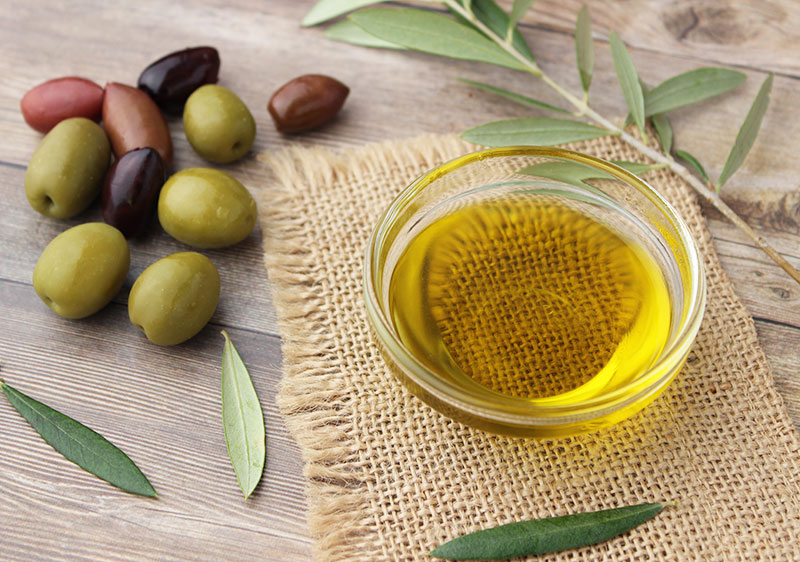
How to Use
There are countless ways to include raw extra virgin olive oil in the
diet. As a versatile ingredient, it can be utilized in recipes, as a condiment with foods, or used for cooking purposes.
Remember
that oil quality can degrade in flavor and health benefits after a
bottle is opened. Usually, it is recommended to consume extra virgin
olive oil within a six-month period as well as before the recommended "best before" date on labels.
EVOO should be stored in a
dark environment in a cool place. Ideally, it is best not to heat olive
oil to minimize nutrient depletion and taste quality as it is subject
to oxidation.
Precautions:
Extra virgin olive oil should be consumed in moderation as part of a health-promoting diet. Seek the advice of your nutritionist or dietitian before using olive oil on a regular basis if you are pregnant, nursing, taking any medications or if you have a serious medical condition.
Shop Related Products (About Affiliates & Amazon Associate Paid Links)
Affiliate Disclaimer: This section contains affiliate product links. If you make a purchase through our recommended links, we receive a small commission at no additional cost to you. Thanks for the support.

